Exhibits
Scholars cite Ralph Ellison's groundbreaking work, Invisible Man (1952), as including “the most important example” of foodways in Southern literature. In the work, the protagonist encounters a street vendor selling yams in Harlem, causing reflection upon foodways, freedoms, and prejudices facing African Americans in the Northern and Southern United States. According to authors David A. Davis and Tara Powell, this scene in Ellison's work “demonstrates the power of food to excite memory and to reinforce identity.” This display features several Southern authors, who also addressed food and its importance in a variety of ways. Author and anthropologist, Zora Neale Hurston’s 1936 letter to Mississippi literary critic Herschel Brickell, alludes to the symbolism of older food traditions, such as sweet potato pudding. William Faulkner's reference to bananas in As I Lay Dying (1930) also interjected concepts of identity, class, and race in the South. Tennessee Williams’ 1954 appearance in Perspectives of “The Long Stay Cut Short: or, The Unsatisfactory Supper,” is also showcased.
More recent examples include the humorous poem, “Ode to Oysters by Mississippi native Larry Brown, the equally lighthearted Jack’s Skillet (1997) authored by Alligator, MS native Jack Butler, as well as a holiday card featuring Eudora Welty's recipe for white fruitcake published by Albondocani Press (1980).
In the display case:
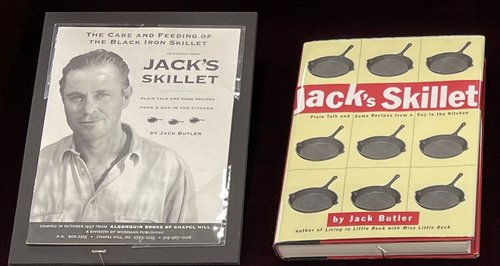
- Jack's Skillet / Jack Butler
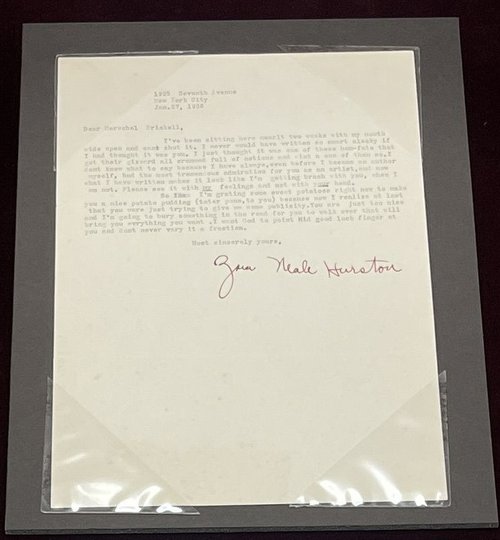
- Letter from Zora Neale Hurston to Herschel Brickell
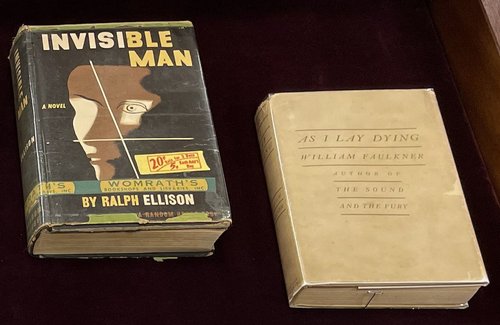
- Invisible Man / Ralph Ellison
- As I Lay Dying / William Faulkner
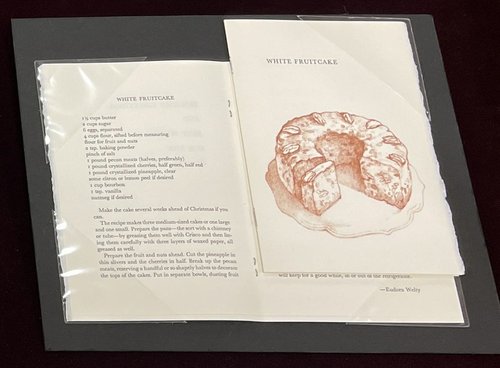
- "White Fruitcake" / Eudora Welty
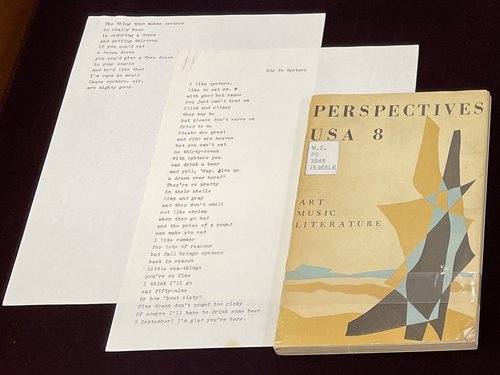
- "Ode to Oysters" / Larry Brown
- Perspectives, No. 8, featuring Tennessee Williams' “The Long Stay Cut Short: or, The Unsatisfactory Supper”
